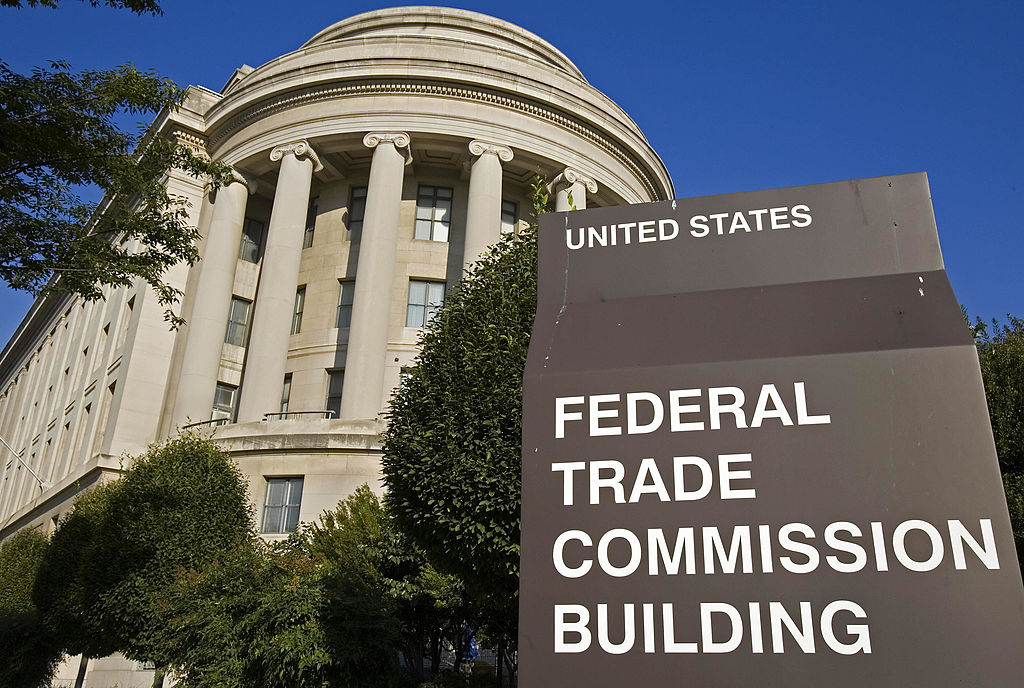FTC Accuses Facebook of Anticompetitive 'Surveillance-Based' Advertising
Said it lured competitors then buried them if they succeeded

The smarter way to stay on top of the multichannel video marketplace. Sign up below.
You are now subscribed
Your newsletter sign-up was successful
The Federal Trade Commission, under the leadership of Big Tech critic Lina Khan, has amended its antitrust case against Facebook accusing the company of a "buy-or-bury" scheme to eliminated its competitors and of refining a strategy of "surveillance-based" advertising targeting innovative competitors, likening it to bribing them not to compete.
Facebook countered that it had to fight to get people's time and attention, and would also fight the complaint.
Facebook had asked that Khan to recuse herself from any decision on how to prosecute the commission's antitrust case against the social media giant because she has prejudged the issue before joining the commission.
She did not, voting with the Democrats on the commission 3-2 to authorize the amended complaint.
In the complaint, amended Thursday (Aug. 19), the FTC said that after failing to come up with its own innovative mobile features, the company "resorted to an illegal buy-or-bury scheme to maintain its dominance. It unlawfully acquired innovative competitors with popular mobile features that succeeded where Facebook’s own offerings fell flat or fell apart."
Those innovative competitors were, primarily, Instagram and WhatsApp.
In addition, the complaint alleges, "Facebook lured app developers to the platform, surveilled them for signs of success, and then buried them when they became competitive threats."
“Facebook lacked the business acumen and technical talent to survive the transition to mobile. After failing to compete with new innovators, Facebook illegally bought or buried them when their popularity became an existential threat,” said FTC Bureau of Competition acting director Holly Vedova. “This conduct is no less anticompetitive than if Facebook had bribed emerging app competitors not to compete."
In a dissenting statement, Republican Christine Wilson said her opposition had to do with the fact that the Instagram and WhatsApp transactions had been vetted in premerger reviews by the FTC and allowed to proceed, calling it "bad policy to undermine the integrity of the premerger notification process established by Congress and the repose that it provides to merging parties that have
faithfully complied with its requirements."
She said her dissent should not be taken as a gauge of how she would vote, one way or the other, on Facebook's petition that Khan recuse herself. She said if the FTC reviewed that petition, she would evaluate it carefully, "applying the relevant law, including Constitutional due process considerations, to the applicable facts."
Facebook had not returned a request for comment at press time early Friday (Aug. 20).
Khan is a veteran critic of concentration and anticompetitive market power and was the lead counsel on a House Antitrust investigation into Google, Facebook, Amazon and Apple that concluded that those companies had captured control of key distribution channels and function as internet gatekeepers, including by buying up potential competitors.
Facebook made that point in its petition, as well as that she was also legal director for the Open Markets Institute, which lobbies on the dangers of monopoly.
In its petition, Facebook said precedent and ethics rules "compel[ed]" Khan to recuse herself given that she has "consistently made public statements not only accusing Facebook of conduct that merits disapproval but specifically expressing her belief that the conduct meets the elements of an antitrust offense under Section 2 of the Sherman Act."
“It is unfortunate that despite the court's dismissal of the complaint and conclusion that it lacked the basis for a claim, the FTC has chosen to continue this meritless lawsuit," the company said in a statement. "There was no valid claim that Facebook was a monopolist--and that has not changed. Our acquisitions of Instagram and WhatsApp were reviewed and cleared many years ago, and our platform policies were lawful. The FTC's claims are an effort to rewrite antitrust laws and upend settled expectations of merger review, declaring to the business community that no sale is ever final. We fight to win people’s time and attention every day, and we will continue vigorously defending our company.”
The smarter way to stay on top of the multichannel video marketplace. Sign up below.
Contributing editor John Eggerton has been an editor and/or writer on media regulation, legislation and policy for over four decades, including covering the FCC, FTC, Congress, the major media trade associations, and the federal courts. In addition to Multichannel News and Broadcasting + Cable, his work has appeared in Radio World, TV Technology, TV Fax, This Week in Consumer Electronics, Variety and the Encyclopedia Britannica.

